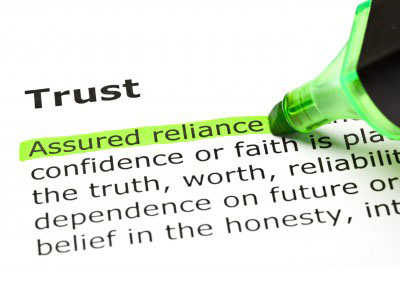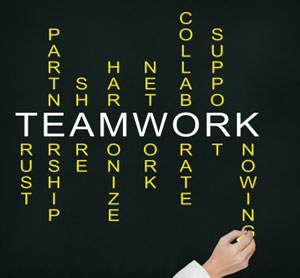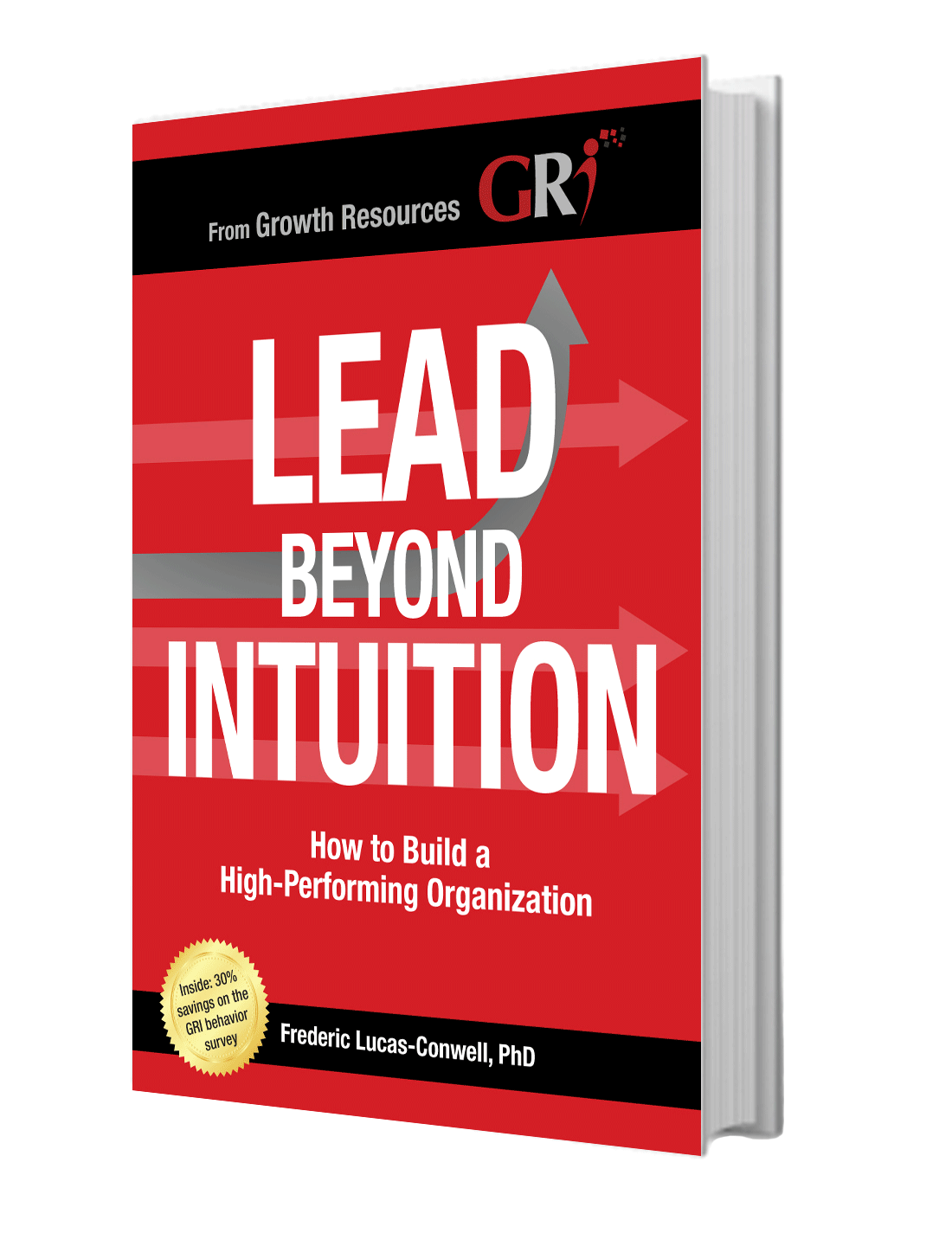Build Trust in the Workplace
Posted by Frederic Lucas-Conwell

Build Trust in the Workplace
For organizations to function efficiently, they must embrace the idea that trust in the workplace is vital to their success.
Trust at Work
Trust is one of the core values essential to productive teams and individuals.
A high trust environment in the workplace is one where team members and their managers are engaged and productive.
Low or non existent trust in your workplace can be a symptom or a cause of:
- high turnover
- high absenteeism
- teams that don't accomplish objectives
- unhappy, unproductive, disengaged employees,
"...disengaged employees cost the American economy over $350 million per year in lost profit."
Gallup Organization
Building trust is hard work. It takes time-and time is a precious commodity in our modern world. What if there was a way to build trust faster and more accurately?
First, let's take a look at some of the key elements of trust, and then we'll talk about how the GRI can help improve the process of creating trust in the workplace.
What Is Trust, and How Does It Develop?
At work, as in our personal lives, trust is based on getting to know each other over time. With each experience we have of another's behavior, we add to our knowledge of them - are they reliable, are they honest, do they follow through? And trust grows or fades.
Trust is based on:
- Confidence in capabilities - will my teammates perform competently?
- Predictable behavior - will my co-worker or manager act in an expected way the majority of the time?
Trust Doesn't Always Come Naturally. The basic relationship between employees and their organizations can be written in black-and-white in signed contracts.
These contracts define some basic foundations of trust:
- As your employer I trust that you will show up at your starting time, stay the agreed-upon length of time, and do what you are asked.
But they don't build any personal trust:
- As the employee, this contract does not mean that I trust the organization to have my best interests at heart, or that my teammates will be reliable.
The skills people bring to the team are not enough by themselves to indicate how they will be used to benefit the team.
For organizations to reap the benefits of trust, it cannot simply be given lip service. With time at a premium in business, leaders must find ways to be proactive in building trust quickly, efficiently, and before problems can start.
Build Trust Using the GRI
"The GRI lets us be proactive in building and nurturing trust, consciously and quickly."
Frederic Lucas-Conwell
What if there was a way to predict how people:
- develop their skills
- perform in a job
- behave in groups
Well, this is exactly what the GRI can do for you.
Consider the following ways the GRI helps build trust faster and better.
Manage Performance - To trust that a person will perform well in a job requires that expectations be communicated clearly, and that the person find some meaning in the work.
Matching an employee's GRI profile with job expectations removes the guesswork and lets you put the right person in the right job.
This creates both efficiency and employee trust since you are allowing your employee to grow their abilities and skills.
Cultivate Diversity - Diversity of skills, experience and style helps create an atmosphere of innovation, where differences in personality are consciously sought out and acknowledged.
GRI results help team members clarify and manage differences by making sure that the whole team understands and accepts them sincerely, not superficially.
Working with differences from the outset helps teams build trust and prevents problems from developing over time.
Improve Interaction & Increase Productivity - Each team member needs to understand the others and to know how to work with each individual's talents. If teams ignore differences or allow one or two members to impose their style on the rest, the team will end up with unhappy members whose trust is shattered, to the detriment of the team and their work.
Sharing GRI profiles helps clarify different ways of performing, and different communication styles, which helps team members build trust in each other.
The GRI helps to identify employee behaviors, needs, motivations, interests and values by providing personality measurements for the workplace that are:
- clear
- positive
- shareable
- acknowledged
- consistent
in order to help businesses build emotional trust with and among their employees.
Build Teams & Productivity with the GRI

Personality is an important factor in building trust, and trust is a critical factor in organizational success, particularly in times of scarce resources, worldwide complexity, rapid information flow, and tension created by competition.
Teams are naturally at risk of losing trust because of misinterpretation of behaviors and misguided expectations in others.
With greater knowledge of personality differences through the use of tools like the GRI, we gain more confidence in predicting how a person will act and how they will develop, and thus are better equipped to build trust, and consequently, a more productive, profitable organization.
Latest Articles
Transforming Boards: Unleashing the Power of Quiet Diversity
Two years ago, a private company's board witnessed a historic shift, appointing a black woman as Chairperson—a groundbreaking move for diversity. However, despite the outward...
A Growth Culture: Enhanced with Behavior Analytics
People are often amazed by how much we can learn from a behavior distribution map such as the one below. You may have guessed that the little dots represent people. The two...
What Part of 'Quiet Hiring' Don't You Understand?
Several trends have recently gained traction in the workplace, and “quiet hiring” is one of them. If you are unfamiliar with it, “Quiet hiring" describes a company's...




